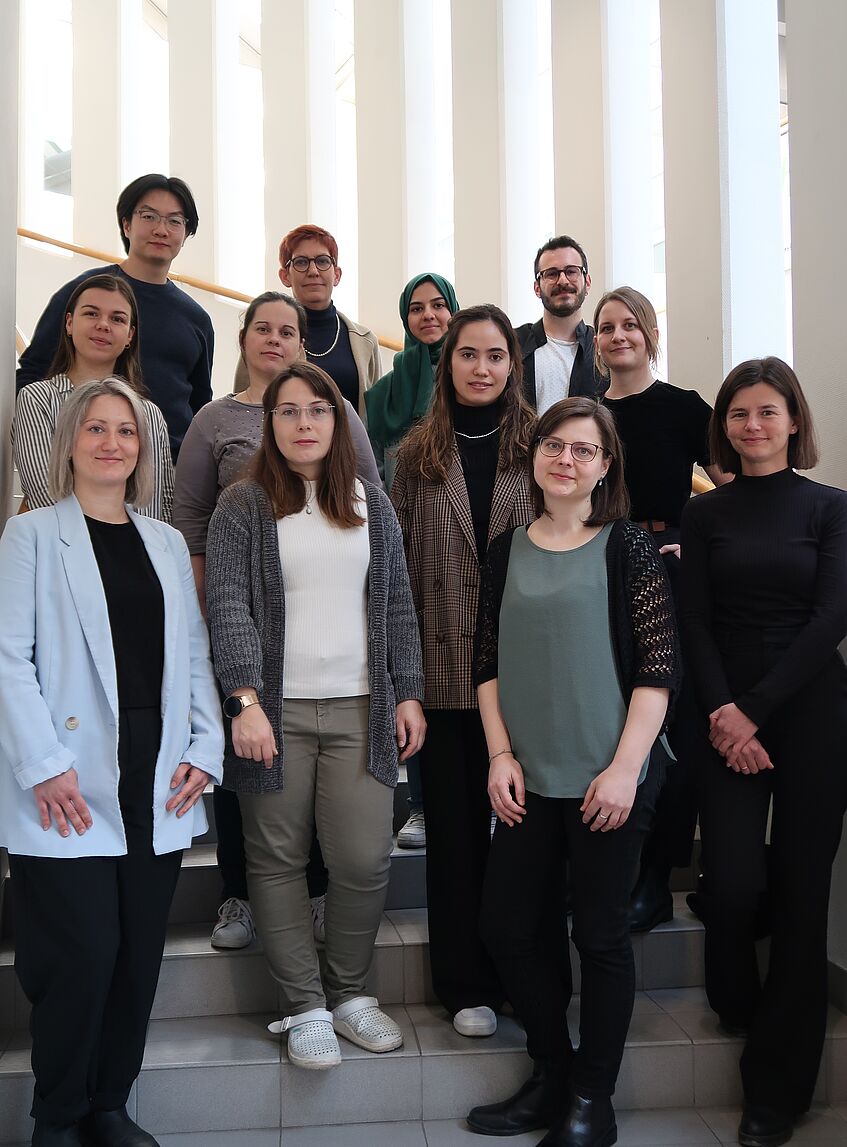The research focus of our group lies, on the one hand, in the investigation of the interplay between the intestine and liver in the context of metabolic liver diseases such as MASLD and ALD. However, we are also dedicated to the investigation of molecular mechanisms of ageing and their influence on the intestinal barrier and the liver as well as cognition and how these can be modulated by nutrition. We are also looking at the influence of diet and dietary patterns on the immune response caused by viral and bacterial components.
The goal of our research is to create the basis for new nutrition-based strategies for the prevention and treatment of steatotic liver diseases, age-related organ damage and infection-associated inflammatory processes. By studying various model organisms and taking a translational approach, we aim to transfer scientific findings directly into practice.

Research focus
Metabolic dysfunction-associated steatotic liver disease (MASLD) and alcohol-associated liver disease (ALD)
MASLD, until recently known as NAFLD, and ALD are a growing burden on healthcare systems worldwide. Studies indicate that complex interactions between metabolic processes, inflammation, ageing mechanisms and the immune system play a central role in the development of... Read more
Ageing and degenerative changes
The number of older people worldwide is steadily increasing and it is predicted that by 2050 the number of people over 60 will exceed that of those under 15. In addition, the findings of the Global Burden of Disease Report 2021 indicate that the older we get, the more likely we are to develop diseases such as Alzheimer's and metabolic... Read more
Nutrition and immune response
The interaction between nutrition and the immune response has come into focus, and not just since the SARS-CoV-2 pandemic. In addition to viral infections, bacterial infections also continue to lead to deaths. The results of our own and other studies show that diet and, in particular, secondary plant compounds, for example from hops but also from other plants... Read more

